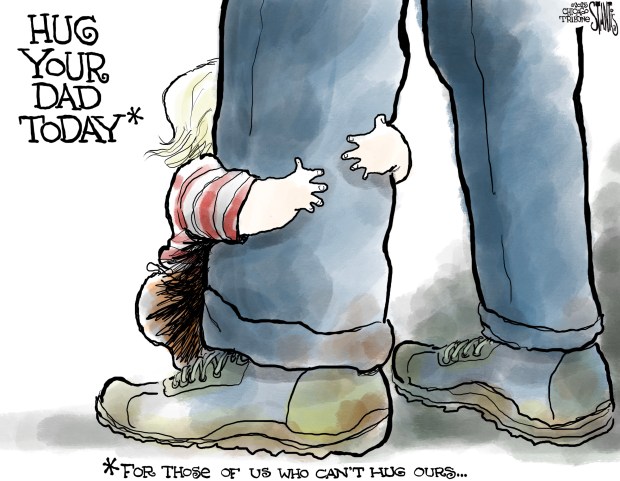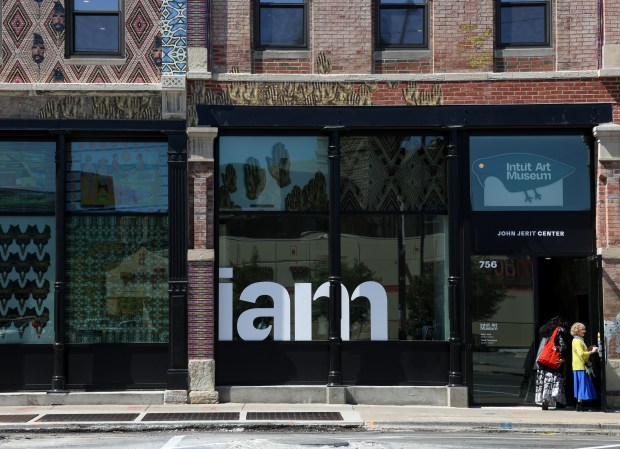Want speed cameras proliferating on your suburban roads?
Chicago-style speed cameras could be coming to a suburb near you thanks to a bill that’s still alive ahead of the April 11 third-reading deadline in Springfield. Today, cameras are allowed only in municipalities with populations over 1 million — which, in Illinois, means Chicago. If this new bill advances, it would authorize home-rule municipalities with populations over 35,000 in counties with more than 3 million people to install speed cameras.
Translation: Speed cameras could be coming to suburban Cook County, the only place in the state with municipalities that fit these requirements.
Red-light cameras are already a reality of life in some parts of the suburbs. From south suburban Homewood to northwest suburban Rolling Meadows, more towns are raising money from these cameras, plaguing drivers just trying to get to work, run errands or shuttle kids to activities.
Des Plaines operates red-light cameras at the busy intersection of Golf and Rand roads that issued 7,885 tickets last year, totaling $320,000.
Other suburbs leverage red-light cameras, too, including Hoffman Estates, also in the northwest suburbs.
Red-light cameras in west suburban Oakbrook Terrace were steeped in corruption, as former Oakbrook Terrace Mayor Anthony “Tony” Ragucci pleaded guilty in 2022 to his part in a kickback scheme involving the village’s red-light camera system.
Ragucci was just one of the elected officials caught up in corruption involving SafeSpeed LLC, which operated cameras in many suburbs. Former state Sen. Martin Sandoval, a Chicago Democrat, pleaded guilty in 2020 to accepting bribes to protect SafeSpeed’s interests in Springfield. Former state Rep. John O’Sullivan pleaded guilty in 2021 to accepting bribes to further SafeSpeed’s interests in Oak Lawn. The Tribune reported new information in February on Chicago Democrat and state Sen. Emil Jones III’s alleged role in the SafeSpeed scandal.
In short, the Chicago area has a history of red-light camera corruption.
That’s not to say all traffic camera programs are corrupt, but they certainly lend themselves to abuse. The public would benefit from far greater oversight of these expanding programs, given the history of widespread problems, not least of which is that partnering with for-profit camera companies can incentivize ticket volume over fairness or safety.
Our distrust of traffic cameras stems from this very problem, and past precedent makes us wary of expanding these programs. We’re also hesitant to support ideas that add yet another cost to everyday life.
We understand the impulse toward safety. Distracted, careless or intoxicated drivers have caused the deaths of many innocent passengers and pedestrians in the suburbs and beyond; reminders of these incidents can be found in the flowers, ribbons and other mementos meant to commemorate loved ones killed in these tragedies. Driving by these spots is a daily reminder of our responsibility to one another when we use the roads.
And yet the idea of the proliferation of speed cameras throughout the greater Chicago area makes us queasy, especially as we consider the failures of the city’s own speed camera program, including disproportional ticketing in Black and Hispanic neighborhoods.
As we’ve said before, we support drivers keeping to the speed limit and being mindful of others who share our roadways. But too often, we’ve seen that cameras are not about safety — they’re about money.
Before state lawmakers rush to replicate Chicago’s broken model, they should ask: Do we want real safety — or just a new stream of fines? We fear that emphasis is more squarely focused on the latter, and we encourage our Springfield officials to reject this legislation without the concurrent establishment of better oversight.
Submit a letter, of no more than 400 words, to the editor here or email letters@chicagotribune.com.




